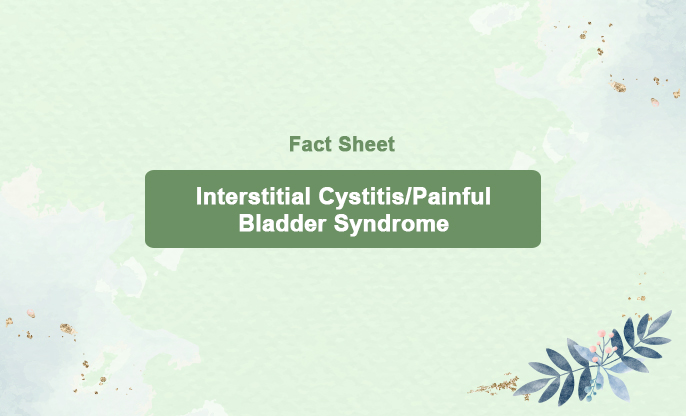
What is this?
Urinary tract infections (UTIs) are common infections that affect the bladder, kidneys, and the connecting tubes. While anyone can develop a UTI, they are especially common in women, with some experiencing them frequently (known as recurrent UTIs). Although UTIs can be painful and uncomfortable, they typically resolve within a few days and can be treated with antibiotics.
Symptoms of a urinary tract infection (UTI) may include:
Pain or a burning sensation during urination (dysuria)
Increased frequency of urination
Increased frequency of urination at night (nocturia)
Sudden or urgent need to urinate
Cloudy urine
Blood in the urine
Lower abdominal pain or back pain just under the ribs
A high temperature or feeling hot and shivery
A very low temperature below 36°C
Dark or foul-smelling urine
Causes:
Urinary tract infections (UTIs) are typically caused by bacteria from feces entering the urinary tract. These bacteria enter through the urethra, the tube that carries urine out of the body.
Women are more prone to UTIs because they have a shorter urethra than men, making it easier for bacteria to reach the bladder or kidneys and cause an infection.
Factors that increase the risk of bacteria entering the bladder include:
Sexual activity
Pregnancy
Conditions that block the urinary tract, such as kidney stones
Conditions that make it difficult to fully empty the bladder, such as an enlarged prostate in men and constipation in children
Use of urinary catheters (a tube inserted into the bladder to drain urine)
Weakened immune system, as seen in individuals with diabetes or those undergoing chemotherapy
Insufficient fluid intake
Poor hygiene, such as not keeping the genital area clean and dry
Treatment:
Treatment of a urinary tract infection (UTI) typically involves:
Antibiotics: The primary treatment for UTIs is antibiotics, prescribed based on the type of bacteria causing the infection and the severity of the symptoms. Common antibiotics include trimethoprim/sulfamethoxazole, nitrofurantoin, and fosfomycin.
Pain Relief: Over-the-counter pain relievers like ibuprofen or acetaminophen can help alleviate discomfort and reduce fever.
Increased Fluid Intake: Drinking plenty of water helps to flush out bacteria from the urinary tract.
Rest: Adequate rest can aid in recovery and help the body fight off the infection.
Cranberry Products: Some studies suggest that cranberry juice or supplements might help prevent recurrent UTIs, although the evidence is mixed.
Probiotics: Probiotics, particularly those containing Lactobacillus, may help maintain a healthy balance of bacteria in the urinary tract and prevent infections.
Follow-Up: In some cases, a follow-up urine test may be recommended to ensure the infection has cleared.
For recurrent UTIs, additional preventive measures may include:
Low-Dose Antibiotics: Taking a low dose of antibiotics for an extended period to prevent recurrence.
Postcoital Antibiotics: Taking a single dose of antibiotics after sexual intercourse if UTIs are related to sexual activity.
Vaginal Estrogen Therapy: For postmenopausal women, using vaginal estrogen therapy to reduce the risk of UTIs.
How to avoid it?
Urinary tract infections (UTIs) can be uncomfortable and potentially serious if not managed properly. Here are several strategies to help avoid UTIs:
Hydration: Drink plenty of water to help flush bacteria out of your urinary tract.
Hygiene: Maintain good personal hygiene. Always wipe from front to back after using the toilet to prevent bacteria from the anal region from spreading to the urethra.
Urination Habits: Urinate frequently and do not hold it in. Empty your bladder fully when urinating.
Post-Sexual Activity: Urinate shortly after sexual intercourse to help clear any bacteria that may have been introduced into the urinary tract.
Clothing: Wear breathable underwear made of natural fibers like cotton, and avoid tight-fitting clothing that can trap moisture and create an environment conducive to bacterial growth.
Avoid Irritants: Steer clear of potentially irritating feminine products like deodorant sprays, douches, and powders in the genital area.
Cranberry Products: Some studies suggest that cranberry juice or supplements may help prevent UTIs by preventing bacteria from adhering to the walls of the urinary tract.
Probiotics: Consuming probiotics, found in yogurt and other fermented foods, may help maintain a healthy balance of bacteria in your body.
Diet: Include foods rich in antioxidants and vitamins, such as fruits and vegetables, which can support your immune system.
Consult a Doctor: If you experience recurrent UTIs, consult a healthcare provider for further evaluation and potential preventive measures, such as low-dose antibiotics.




